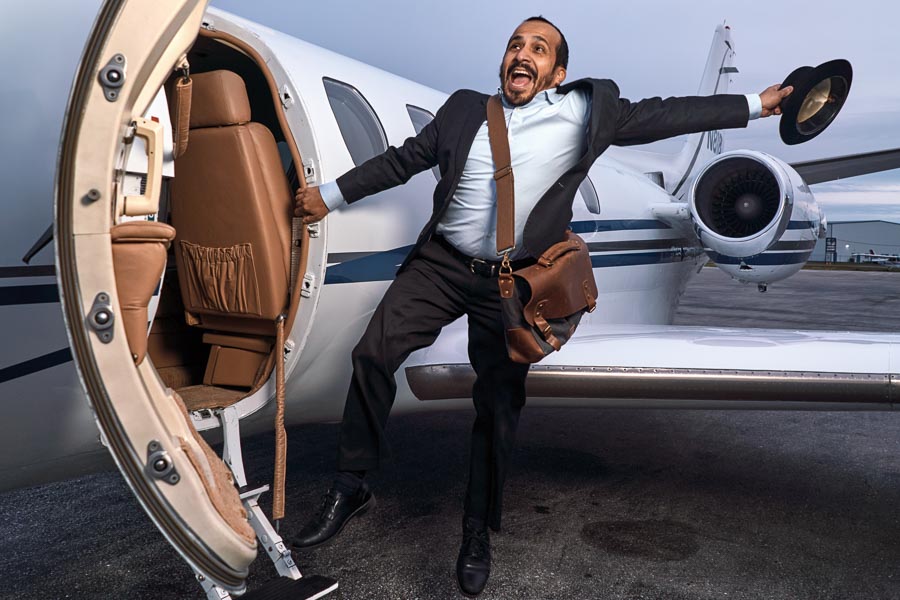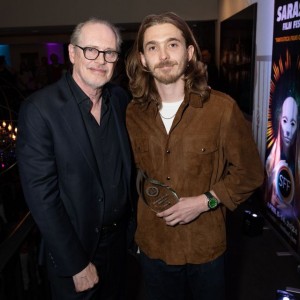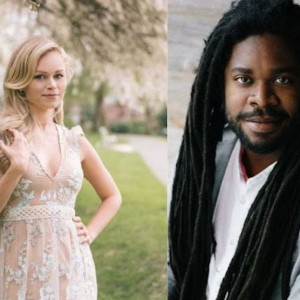The trips to Canada began in 2000 and never really stopped. And official records document multiple flights to Puerto Rico from the years 2003 to 2007. Unconfirmed reports place him in Latvia and the Netherlands last year; further rumors said Paris, France. Surveillance footage spotted him in the markets of Riyadh in Saudi Arabia in 2016, but hotel records place him no fewer than 8,700 miles away in a theater in Guadalajara. And newly shared intelligence from 2011–12 traces a path all over East Asia, including Tokyo, Japan, Beijing, Shanghai and Hong Kong in China and Seoul, South Korea. Domestic activity registers in Boston, LA, Austin, Chicago, Tampa and Atlanta. Operating out of a home base here in Sarasota, where he serves as director of improv for Florida Studio Theatre, Will Luera has indeed gone global.
Not a superspy or international man of mystery; what takes Luera around the globe is a very particular set of skills—improv skills. Whether performers in search of an expanded repertoire or high-powered executives looking to master the art of the pivot and public speaking, they all turn to Luera for one of his workshops or training modules.
It all began 15 years ago in the Boston improv scene, where Luera invented a new style of improv theater called freeform. He teaches it now at FST. “It’s a style that moves a little bit faster,” he says. “It’s more fluid than your traditional improv.” Improv fans will be familiar with terms like “short form” and “long form”—the former style comprising a series of games or sketches that typically last three to four minutes in length, with a host to introduce each one, and the latter a more connected series of such scenes with the host appealing to the audience at the beginning and then letting the performers riff for 25–30 minutes. Freeform turns the whole operation into a nonstop, fast-paced comedy frenzy, where some scenes may last five minutes and others five seconds, but each blends into the next with no time to second-guess. “We’re working off intuition,” says Luera. “It’s a type of improv that moves almost at the speed the audience is thinking.” Last month, he was invited to Germany to teach freeform to improv performers there, and Italy three months before that.
Sometimes it’s a theater troupe wanting to learn a specific show and sometimes it’s a CEO looking to find some stage presence, but it’s always a learning experience for Luera as well. Different cultures view comedy differently, he says, and they perform improv differently, offering insights into how he can evolve his own style. Here in the US, for example, improv comes from a very verbal tradition. “We’re very wit-driven,” Luera says, and scenes come chock-full of sarcasm and wordplay. “But go a little bit farther south, to Latin America, and improv starts being about big emotions and big responses. Sarcasm isn’t as big of a tool as overacting can be.” Heading to Europe provides yet another perspective, as physicality and even clowning enter the improv equation in ways they do not in the US. “So it’s funny to see an American scene where you just see a couple people sitting in chairs talking to each other—and really being funny—but then watch a show in Europe and the actors are all over the stage,” Luera says.
With plenty left to see in the world, Luera now has his eye on improv scenes as far-flung as Melbourne, Australia and Johannesburg, South Africa, as well as spots in Egypt and Algeria. “There are communities out there developing their own styles of improv, and they know nothing about traditional American improv,” he says. “And my biggest learning experience comes from being exposed to new cultures.”










